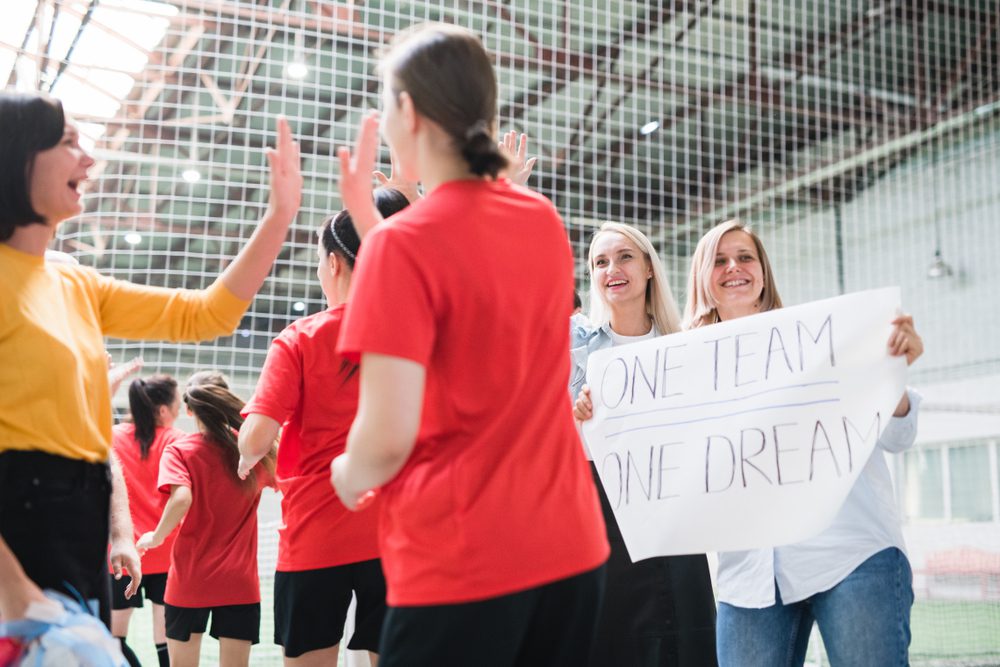The National Association of Intercollegiate Athletics (NAIA) has given the green light to a ban on transgender women taking part in women’s sports.
The organization’s Council of Presidents, which supervises student athletics at 249 small colleges (mostly private institutions), voted 20–0 in favor of the new policy. This policy will be effective from August 1. According to CBS News.
Transgender women and nonbinary students receiving masculinizing hormone therapy will be prohibited from participating in interscholastic competition on women’s teams under the new policy. However, students on hormone therapy can still engage in workouts, practices, and other team activities. NAIA President Jim Carr said that those barred from women’s teams under the new policy can participate in men’s events. CBS Sports “With the exception of competitive cheer and competitive dance, the NAIA created separate categories for male and female participants,” the NAIA said in a statement. “Each NAIA sport includes some combination of strength, speed and stamina, providing competitive advantages for male student-athletes. As a result, the NAIA policy for transgender student-athletes applies to all sports except for competitive cheer and competitive dance, which are open to all students.”
Carr recognized that there are various opinions about trans women’s participation in women’s sports but stated, “We believed our first responsibility was to create fairness and competition in the NAIA.”
According to the
Associated Press , about 125 NAIA schools are religiously affiliated. Seventeen of the 20 members of the organization’s Council of Presidents who voted for the new policy are from Christian schools. The NAIA is believed to be the first college sports organization to fully ban trans women from women’s sports.The National Collegiate Athletes Association (NCAA), on the other hand, permits trans women to participate in women’s sports if they have been on hormone replacement therapy for at least one year and provide testosterone level tests before the regular season and championship events. Additional national and international sports governing body standards will be put in place starting August 1 before the 2024–2025 school year.
“College sports are the premier stage for women’s sports in America and the NCAA will continue to promote Title IX, make unprecedented investments in women’s sports and ensure fair competition for all student-athletes in all NCAA championships,” the organization said in a statement responding to NAIA’s new policy.
Kasey Havekost, a higher education attorney and former Division I athlete, told the Associated Press that she expects the NAIA’s policy to be challenged under Title IX, the federal law prohibiting schools from discriminating based on sex.
“I feel like at some point, it will have to be addressed,” Havekost said. “It’s a really complex issue. It might take a Supreme Court ruling.”
Under President Joe Biden, the U.S. Department of Education (DOE) proposed
changes to the rules of Title IX last year, there were rule changes to Title IX that could let K–12 schools and universities limit the participation of transgender athletes in sports while also preventing schools from completely banning trans athletes. However, the new rules have not been approved yet because the administration decided earlier this year to separate them from other Title IX rule changes addressing campus sexual assault. NAIA’s Carr told CBS News that they believe the policy aligns with Title IX because it allows separate but equal opportunities for women to compete.
Shiwali Patel, senior counsel at the National Women’s Law Center, stated that the policy is “unacceptable and blatant discrimination that not only harms trans, nonbinary and intersex individuals, but limits the potential of all athletes.”
Patel emphasized that these discriminatory policies don’t make competition fair. Instead, they convey a message of exclusion and reinforce harmful stereotypes that affect all women.
Sasha Buchert, a senior attorney at Lambda Legal and director of the organization’s Nonbinary and Transgender Rights Project, criticized the NAIA for approving the policy because of ignorance, prejudice, and exaggerated public fear about trans women’s participation in women’s sports.
Buchert expressed in a statement that research clearly shows the many benefits of participating in school sports for students from grade school through young adulthood. She accused the NAIA of turning its back on transgender young people, depriving them of the benefits of participation.
Buchert pointed out that the NAIA’s policy and
laws prohibiting trans women and girls from taking part in school sports target a disproportionately small number of athletes who are already vulnerable to discrimination. According to the AP, a 2017 Human Rights Campaign survey indicated that fewer than 15 percent of transgender students participate in sports. Buchert described it as unacceptable that an organization claiming to have a ‘strong history of advocacy’ has chosen to use its power to suppress, rather than support, these vulnerable athletes. She urged the members of the NAIA to educate themselves further and reconsider their position.
The major collegiate athletic association argues that it’s all about fairness, but trans advocates are challenging its claim.









